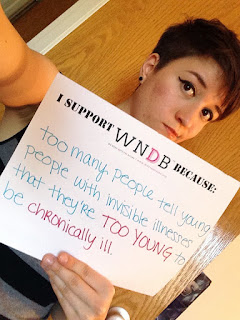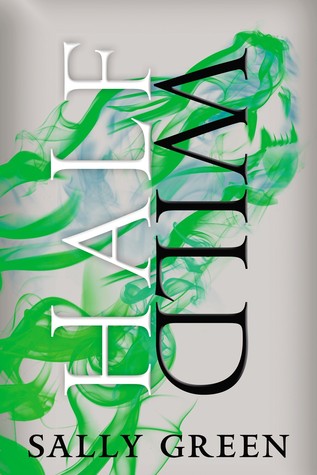So as I mentioned on Friday,
last week was Writability's fourth birthday! And this week I'm celebrating with a huge giveaway focused on the most popular giveaway item here—critiques! All the critiques!
After doing a call on Twitter for editor-types who'd be willing to help out, I have
seventeen prizes to give away from some really generous editors and interns. And here they are!
Michelle Hoehn—Query critique
Michelle Hoehn was born on a Monday, married on a Saturday, and last seen purchasing what has to be (in her opinion) the most delicious mini watermelon on a Sunday. For the past year, she’s worked as an editor with REUTS Publications. Michelle loves all kinds of storytelling, especially animation, comic books and television.
Twitter: @mah_hoehn
Blog:
http://www.asleuthofbears.com
Megan Easley-Walsh—5 Query critiques
Megan Easley-Walsh has over seven years experience helping others improve their writing and content editing is her speciality. She is a certified English teacher, who has taught a writing course to international college students in Dublin, Ireland by request. She is also an author and poet, won her first computer in a writing contest in college, and has had her work requested for use in classrooms in the United States and South Korea to demonstrate writing techniques.
Cait Spivey—Partial submission package critique (query, synopsis, first three chapters)
Cait Spivey is the author of the paranormal horror novella series “
The Web” and the forthcoming New Adult dark fantasy,
From Under the Mountain (October 2015). She is also co-owner of
Bear and Black Dog Editing LLC and a lead editor for REUTS Publications, and has interned for The Bent Agency and Corvisiero Literary Agency. She loves dark stories, unlikeable protagonists, and tragic romances.
Phil Stamper—Partial submission package critique (query, synopsis, first three chapters)
Phil Stamper is a public relations professional who fled the States with his love of books to earn his M.A. in Publishing at Kingston University in London. He acts as the managing editor for RiPPLE, an annual literary magazine, and he is also an editor and proofreader for Booktrope, where he is actively taking on new projects. You can find him on
Twitter, where he exclusively talks about 90s movies, British culture, and sometimes books.
Liz Furl—First 20 pages critique
Liz Furl is the founder and editor-in-chief of
Real Talk Magazine and the co-host of the
Getting There podcast. She is also a freelance writer and editor, and blogs at
Furl Unfurled. You can find her on Twitter at
@LizFurl.
K.T. Hanna—Query + first 25 pages critique
KT has been a New York City Agency intern since August 2014, ecstatically devouring manuscripts and filling in reader reports. After realizing her love of editing, she became one half of
Chimera Editorial Services. Her debut novel,
Chameleon (The Domino Project #1), releases August 4, 2015.
Ava Jae (me!)—Query + first 25 pages critique
Ava Jae is a YA and NA writer, an Assistant Editor at Entangled Publishing, and is represented by Louise Fury of The Bent Agency. Her YA Sci-Fi debut,
BEYOND THE RED, is releasing March 2016 from Sky Pony Press. When she’s not writing about kissing, superpowers, explosions, and aliens, you can find her with her nose buried in a book, nerding out over the latest X-Men news, or hanging out on her
blog,
Twitter,
Facebook,
tumblr,
Goodreads,
Instagram, or
YouTube channel.
Nicole Tone—First 50 pages critique
Nicole Tone is a NA and WF writer, MFA Writing candidate at Savannah College of Art and Design, an Editor at Pandamoon Publishing, and an Editorial Intern at REUTS Publications. Her NA Contemporary debut, LAKE EFFECT, is releasing Winter 2016 from REUTS Publications. When she's not writing or editing, she's playing tourist in her city or hunting for her next book idea. She's doing book reviews and travel writing on her blog,
www.nicoleatone.com, and be sure to her on Twitter at @nicoleatone.
Jackson Eflin—First 50 pages critique
Jackson Eflin graduated from Ball State with an degree in Creative Writing and is trying to support his community in any way he can while assisting a teacher at an afterschool program for at-risk elementary students. He's usually in the middle of four or five different speculative fiction books and was published in
No Horns on these Helmets, an anthology of Viking Fiction, this May. Follow him on
Twitter here!
Anya Kagan—Query + First 50 pages critique
Anya Kagan loves helping others shape the gems of their writing, working to draw out and enhance the author's vision. Since graduating from Brandeis University with a degree in Creative Writing (as well as in French and Russian Literatures), Anya has worked with authors such as Simon Quellen Field, Gabriel Böhmer, Aubrie Dionne, Sarah Andre, and many more. She is cofounder of
Touchstone Editing.
Jami Nord—Full MS critique
Jami Nord has interned for Entangled Publishing, Bree Ogden, and a NYC Agency she’s pretty sure is Voldemort, since she’s not allowed to say their name. She comprises half of
Chimera Editing, and still spends her nights curled up with great books.
Kisa Whipkey—Full MS critique
Kisa Whipkey is a dark fantasy author, a martial arts demo team expert, and a complete sucker for Cadbury Mini-eggs. She's also the Editorial Director for YA/NA publisher,
REUTS Publications. Her personal blog--featuring sarcastic commentary on all things storytelling--is located at
www.kisawhipkey.com.
Nicole Frail—Proposal + Full MS Critique (for fiction or non-fiction)
Nicole Frail is an editor of both fiction and nonfiction at Skyhorse Publishing in New York City. She acquires mainly cooking and lifestyle/hobby, adult genre fiction, and young adult fiction. Main interests include reading, writing, sleeping, and eating!
Note from Ava: Also, Nicole is my editor. So. Just saying. ;)
So many critiques! I've decided this time to put everything into one giant rafflecopter this time, so you only have one to enter. :) The giveaway will run until next Monday, May 18th at 11:59 PM EST. Good luck!
a Rafflecopter giveaway
Finally, if you don't have anything ready for critique,
you can still enter to win hardcovers of Trish Doller's Something Like Normal and Where the Stars Still Shine as well as an ARC of The Devil You Know in this guest post! If I wasn't hosting, I would totally enter. Just saying.
Thanks for all of your awesome support! Happy entering. :)





















.jpeg)










